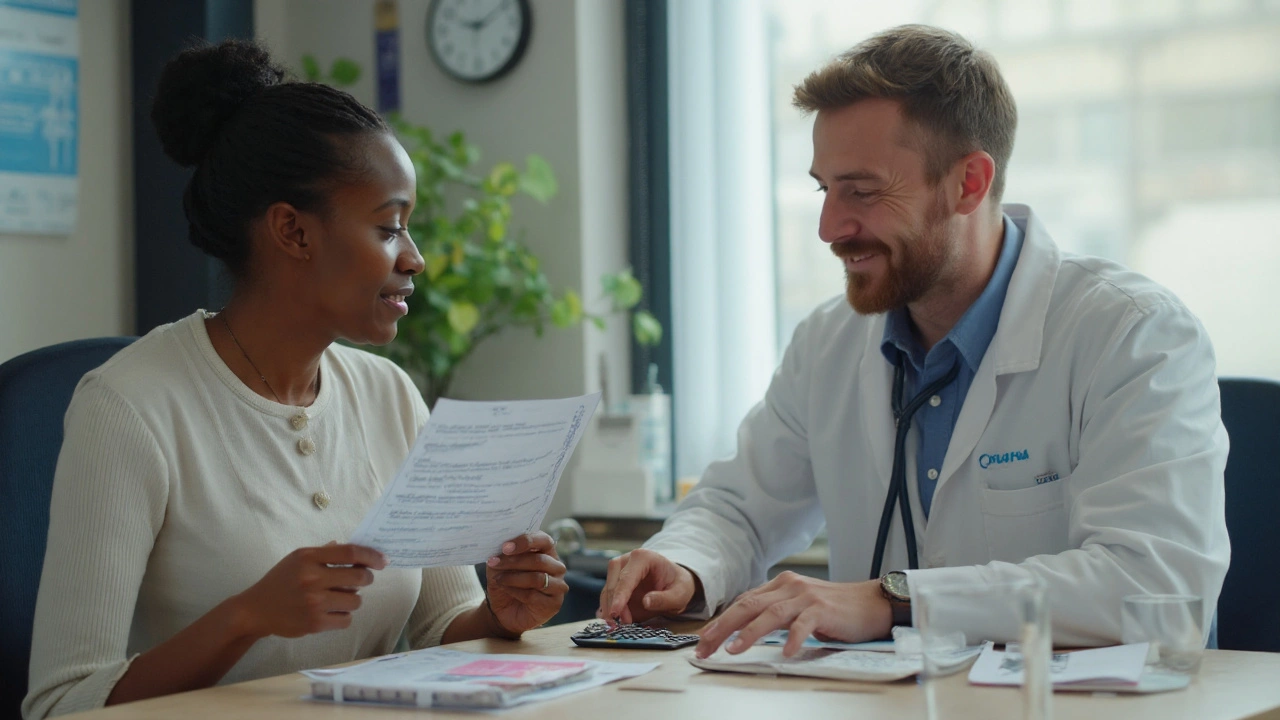Doctor Communication: Simple Tips for Clear Conversations
Ever left a doctor's office feeling confused about what was said? You’re not alone. Good communication with your doctor can mean the difference between a quick recovery and a lingering health issue. Below are practical steps you can take right now to make every visit more effective.
Ask the Right Questions
Before you walk in, jot down the main reasons for the appointment. During the visit, use these quick prompts:
- What is the diagnosis? Ask for a plain‑English description, not just medical jargon.
- Why this treatment? Knowing the reason helps you stick to the plan.
- What are the side effects? This is especially important for new meds or changes to existing ones.
- How will I know it’s working? Ask for clear signs that indicate progress.
Writing questions down prevents you from forgetting them when you’re nervous.
Understand Your Prescription
Prescription notes can look like a secret code. If you can’t read the handwriting, don’t guess—ask the pharmacist to read it out loud. Some doctors write abbreviations that mean different things in different contexts. For example, “QD” usually means once a day, but some pharmacies interpret it as four times a day. Confirm dosage, timing, and whether food matters.
When you pick up the meds, request a brief rundown of how to take them and what to watch for. This extra step cuts down on medication errors and dangerous drug interactions.
Talk About Drug Interactions
If you’re already on other medicines, supplements, or even over‑the‑counter pain relievers, bring a list. Even common items like ibuprofen can clash with certain prescriptions. Let your doctor know about any herbal products or vitamins you use—something as simple as St. John’s wort can affect antidepressants.
For complex regimens, ask for a printed chart or a phone app that reminds you when to take each drug. Visual aids make it easier to stay on track.
Keep the Conversation Ongoing
Health isn’t a one‑time chat. If symptoms change or side effects appear, call the office right away. Many clinics have nurse lines for quick questions, saving you another full appointment.
Don’t hesitate to ask for a follow‑up email summarizing the visit. A short note with key points—diagnosis, meds, next steps—helps you remember and share with family members who might help you stay on track.
Build Trust Over Time
When you’re honest about lifestyle, habits, and concerns, your doctor can tailor advice that actually fits your life. This two‑way honesty creates a partnership, not just a one‑sided lecture.
Start using these tips at your next visit. Clear, confident communication turns a routine check‑up into a powerful tool for staying healthy.

How to Talk to Your Doctor and Pharmacist About Meds: Practical UK Guide
Caleb Drummond Sep 11 0A no-nonsense UK guide to talking with your doctor and pharmacist about meds-what to ask, how to prepare, scripts, checklists, and who to call when.
More Detail